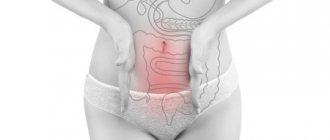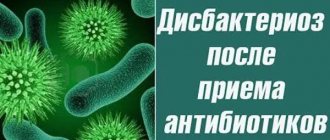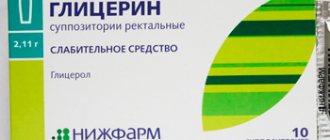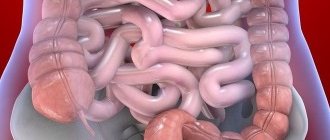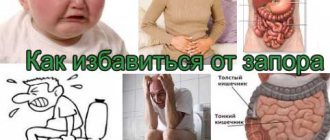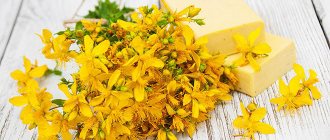Long-term constipation is dangerous due to the reabsorption of waste products into the blood and increasing intoxication of the body. Due to the outflow of fluid from feces, their consistency changes. The feces become hard and during defecation can injure the rectum and anus. Softening stool during constipation means preventing organ injury and facilitating the process of bowel movement.
What is a fecal plug?
To understand what a fecal impaction is, you need to imagine bowels that haven't had a bowel movement in the last few weeks. The old feces do not come out anywhere, but the person continues to eat, and the digested food simply must come out. Feces accumulate into one lump, which increases in size every day.
Due to the fact that with constipation, the body begins to experience signs of dehydration, stool becomes especially hard. Later, they begin to be joined by leftover food, which is no longer digested, and plant fibers, represented by fiber, which is so often recommended for constipation. There are also cases when hair, bile, medications and even blood clots are found in the stool.
The picture presented is unpleasant, but this is exactly what fecal impaction represents. To put it differently, a fecal impaction is a pathological solid body in the human intestine, measuring 3 cm or more. This clot injures the intestinal mucosa, causing the patient unpleasant pain; in particularly advanced cases, the mucous membrane may simply rupture, which will cause internal bleeding. If a fecal congestion has already formed, then you should not wait for self-healing; you must immediately seek help from specialists.
Diet
If there are changes in the color and consistency of stool, special attention should be paid to diet. You need to adjust your diet as follows:
- Avoid fatty meats and fish
- When cooking, use a small amount of butter or vegetable oil,
- Drink more fluids
- Eat foods rich in fiber: vegetables and fruits,
- The menu should include porridges and slimy soups,
- It is necessary to exclude spices from the diet and consume a minimum amount of salt.
Food should be taken in small portions so that the digestive system can cope with its processing.
Reasons for appearance and place of formation
A blockage of feces can form in absolutely any part of the intestine. Most often, the blockage occurs at the end of the intestines, near the rectum. Fecal blockages in the intestines are a direct consequence of chronic constipation. The main factor that influences the development of this condition. It is a person’s habit to wait until constipation goes away on its own without taking any action.
There are other reasons that affect the formation of fecal congestion:
- overeating, or rather eating a large portion of food at one time;
- a diet consisting of fried, smoked and fatty foods;
- disturbed form of the rectum of a congenital or acquired nature;
- poor tone of the large intestine and its impaired peristalsis;
- psychological problems.
It is worth talking about the psychological reasons in more detail. A fecal plug forms in those who suffer from anal fissures and hemorrhoids. A person is simply afraid to push, it seems to him that this will lead to a worsening of the condition in the anorectal area. Hemorrhoid nodes enlarge, bleeding increases, and the patient tries to restrain the urge to go to the toilet until the disease recedes. This decision only makes things worse and leads to complications. If you have hemorrhoids, then in case of constipation it is better to use an enema or special laxative suppositories rather than let it become congested.
Another reason may be persistent depression, nervousness, psychological problems or mental illness. In this state, a person simply will not monitor the rhythm of bowel movements. In this case, it will not be possible to avoid fecal blockages in the intestines . Problems with bowel movements often occur in childhood. This problem is especially familiar to persimmon lovers. The fruit clogs the children's intestines, its waste is difficult to digest.
In children
In newborns, in the first days of life, stool differs in color and consistency from normal feces. When breastfeeding, the color of the stool is golden yellow and the consistency is liquid. The reason for this is the immaturity of the digestive system and the presence of bilirubin in the feces, which is replaced by stercobilin by the 4th month of life.
In bottle-fed children, stool is denser in consistency with a white tint and a pungent odor.
The consistency of stool directly depends on the child’s diet: when eating a large amount of protein foods, it becomes dirty-gray and smelly, and when eating fatty foods, steatorrhea appears.
In children of the first year of life, fed with undiluted cow's milk, the feces become “soapy,” silvery, shiny, with pieces of mucus on the surface.
In any case, if the color and consistency of stool changes, it is necessary to consult a doctor to exclude the presence of gastrointestinal tract diseases in the child.
Symptoms

The intestines work normally when they are emptied on time. The process of defecation should be easy and without obvious discomfort. If the process is difficult or a person does not go to the toilet for more than a day, we can say that he has constipation. It is not so difficult to confuse the symptoms of constipation and fecal impaction. Signs of fecal obstruction are:
- lack of stool for a week;
- bloating and hardening of the abdomen;
- spasms and sharp pains of a constant nature;
- intoxication of the body;
- headaches, weakness, nausea;
- rashes on the face;
- vomit has a faint smell of feces;
- increased gas formation;
- in advanced cases, body temperature may rise.
In the final stages, the fecal bolus cannot be broken; a so-called obstruction forms, when several stones almost completely fill the rectum. In this case, only small gaps remain through which only liquid stool can pass.
Important! Enemas, laxatives and suppositories will no longer help in this case; you must urgently seek help from a proctologist.
Acute constipation
An acute form of constipation is a condition when a mass of feces hardens to such an extent that it gets stuck in the intestines and its exit is completely blocked. For this type of problematic stool includes:
- discomfort and discomfort in the rectal area;
- feeling of distension and fullness in the abdomen;
- complete absence of emptying;
- the urge to defecate does not lead to results.
In most cases, dense stools are accompanied by incomplete excretion of feces, and this leads to congestion in the rectum. This process is accompanied by a painful effect due to the difficult passage of feces that were previously stuck. The intestinal walls are damaged, tears and cracks form, including in the anus. If you do not use laxatives in any form before going to the toilet, this will lead to the formation of a hernia, hemorrhoids and rectal prolapse.
Methods of disposal
If there is an obstruction in the intestines due to the formation of a fecal blockage, a gastroenterologist or therapist will no longer be able to help in this case. It is better to save time and immediately make an appointment with a proctologist. The doctor should be chosen so that he has surgical practice. The sooner you manage to get an appointment with a specialist, the greater the likelihood that the problem can be solved without consequences.
The doctor will begin treatment with an important stage - diagnosis. The proctologist can easily feel fecal plugs, especially large ones, with his fingers. During a rectal examination, palpation of the rectum or abdomen should be performed. If the stones are small, or there may be several of them, the patient needs to undergo an ultrasound or x-ray. If the plug is located in the colon, the patient will undergo a colonoscopy.
The doctor should conduct a thorough examination and collect anamnesis to exclude possible tumor formation or intestinal deformation. Such problems can cause poor passage of stool without the formation of fecal stones. In an adult and a child, it is possible to remove the fecal plug without involving a surgeon, but this will only be possible if the process is not very advanced.
Important! Don't rely on mild laxatives. Only a good old enema can help here.
At home
When a fecal impaction , few people know how to help themselves and get rid of it at home . In order for the structure of feces to quickly normalize, you should start directly with correcting your diet. When the stool has already become dense and does not pass well, it is important to promptly avoid foods that will only aggravate the problem. A large amount of plant foods and fiber should be added to the menu.
It is worth paying attention to the recommendations that gastroenterologists give to those who suffer from stool compaction:
- Most of the diet should be fresh vegetables;
- remove semolina and rice from the menu;
- main courses should be cooked in low-fat broth;
- You should eat more often, but in small portions (at least 5 times a day);
- remove caffeine from your diet;
- more often consume natural fermented milk products that do not contain preservatives or thickeners;
- A few drops of vegetable oil should be added to the prepared food.
Considering that the cause of hard stool is often dehydration, you should hydrate your body, and for this you need to drink at least 1.5 liters of water per day. You don't need to drink just any liquid, but clean water. Drinking tea or coffee can make your body even more dehydrated, as these products have a diuretic effect.
Use of laxatives
If the diet prescribed by the doctor and adherence to the correct diet do not produce a positive result, the use of laxatives will be required in order to gently soften the stool. Any laxative has a number of contraindications; they should be used with caution and, of course, it is better that the drugs are prescribed by a doctor. For example, fast-acting drugs cannot be used for very hard stools, as they do not help soften them. As a result, the stool will pass painfully, cracks and tears will appear in the rectum.
The prescription of drugs with a laxative effect should be selected depending on the course of the pathological condition. It is worth considering the patient’s age group and the presence or absence of additional diseases.
Surgical intervention
If we talk about traditional medicine, then another way to soften the fecal plug is to mechanically crush it with your fingers. During this manipulation, the doctor inserts his fingers into the patient's anus and manually breaks up lumps of feces. This is not so easy to do, because the movements must be careful so as not to damage the intestinal walls, but at the same time such as to achieve the desired effect. The patient should not worry about discomfort. The process is carried out under local anesthesia. Finally, the intestine is washed with water to get rid of any remaining fecal matter.
How to get rid of fecal impaction when the situation is extremely advanced? If a week has already passed since the lump formed, and laxatives have not helped, the only option is the help of a surgeon. This method of colon cleansing is called colon hydrotherapy. In addition to the main task of removing fecal blockage, this procedure will help cleanse the body of waste and toxins, as well as improve the intestinal microflora.
A special device equipped with a compressor fills the intestines with liquid. Feces from a solid state turn into liquid and are excreted from the body. Even if the large intestine has been deformed due to obstruction, colon hydrotherapy will help correct the situation. In just 45 minutes of the procedure, at least 30 liters of water pass through the human intestines. There will be little pleasant, but no fecal plug can resist this technique.
Important! To prevent the development of complications, at the first manifestations of a fecal impaction, you should immediately consult a doctor.
How to soften stool at home
There are many home remedies to soften stool for constipation. They do not require large amounts of time and investment.
- Drinking enough liquid – from 1.5 to 2 water per day.
- One-day kefir - the maximum dosage is 0.5 liters per day.
- Consumption of flaxseed - added to salads, dairy dishes. 1-2 teaspoons of grains per day is enough.
- Beets - boiled and raw. Salads are made from the root vegetable, and the juice is drunk in a diluted state.
- Plums, prunes – compotes, raw. Dry fruits are steamed and added to fermented milk products.
- Dried apricots and apricots – like prunes, help soften feces.
- Vegetable oils - olive, sunflower, corn - a sufficient dosage is 1-2 tablespoons per day. If it is not possible to take pure oil, then it is used for salad dressing.
- Chamomile decoction has a regulating, laxative effect. For 5 g of dried flowers you will need 1 cup of boiling water. Pour in and leave to steep. Take instead of tea.
When using traditional methods, do not exceed the recommended dosages. Otherwise, instead of relief, you will get diarrhea.
What information is missing from the article?
- More reviews of effective products
- Products that will help with the problem
- How to avoid constipation
- How to relieve pain
Prevention
Even after completing the full course of treatment for such a delicate problem as fecal impaction, you should not relax. In this case, prevention should not be neglected. It is important not to ignore bowel movements on a regular basis. If constipation occurs, you should not ignore this condition; you should immediately take measures to get rid of it.
Proper nutrition will ensure that problems with stool will never arise again. You should not overeat, even if the dish turned out very tasty. It is important to try to eat more plant foods and grains that are rich in fiber. Fecal impaction, everyone who suffers from irregular bowel movements now knows what to do with such a problem.
If it was not possible to avoid repeated problems with stool, you should not get carried away with laxatives, as they are addictive. The intestines will simply forget how to empty themselves independently, without the help of others.
Correct use of laxatives
The method of using Duphalac, daily and single dosages, as well as the duration of the therapeutic course are determined by the attending physician. Laxative syrup is not only intended for oral administration; its solution is used in the form of enemas. For the treatment of constipation, a single dose of Duphalac is indicated in the morning or before bedtime. The main thing is that the drug is taken at the same time.
To restore intestinal microflora that have died as a result of infection with Shigella or Salmonella, gastroenterologists prescribe a laxative in an increased dosage. For salmonellosis, Duphalac should be taken 2-3 times a day before meals. Once the required clinical effect is achieved, the dosage of the drug is gradually reduced.
Only the doctor decides how long Duphalac can be taken by adult patients. During therapy, the patient regularly submits biological samples to the laboratory to monitor the effectiveness of the treatment. If a developing water-salt imbalance is detected, Duphalac should be stopped.
